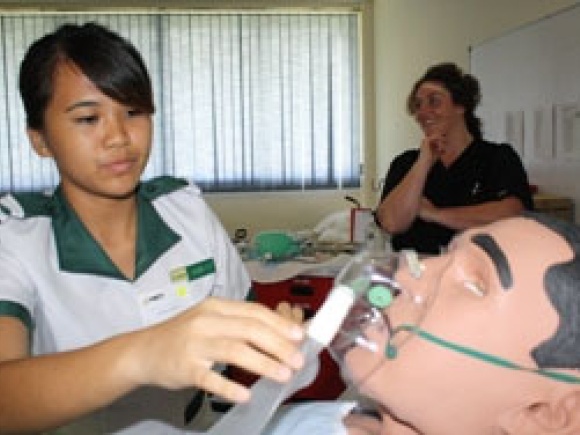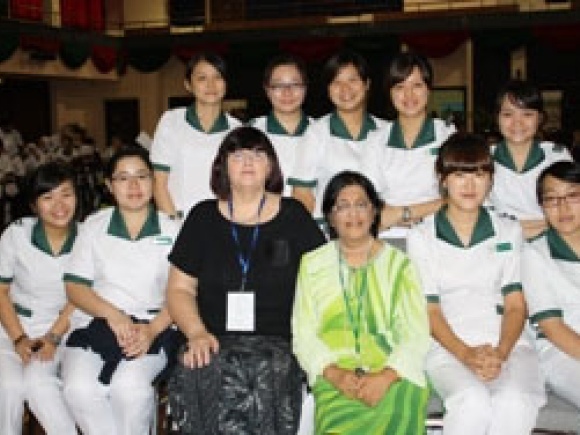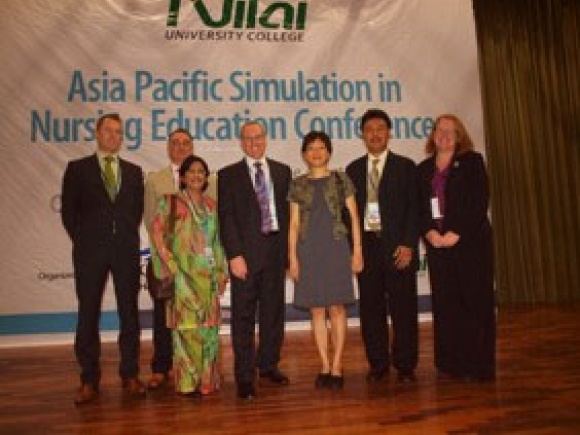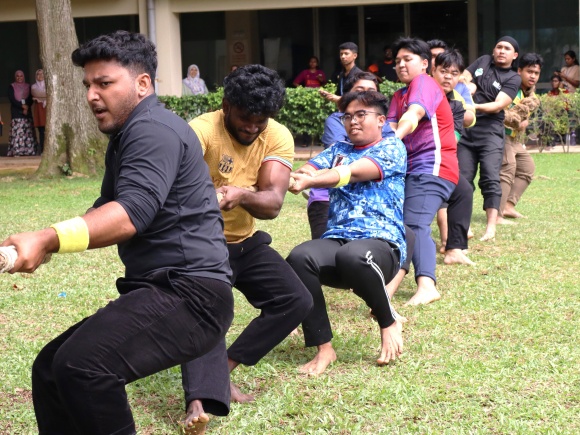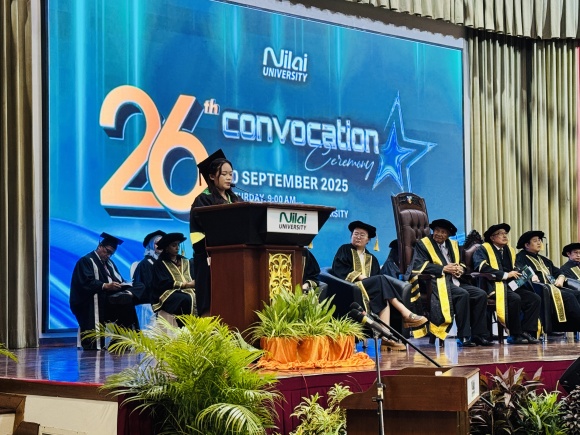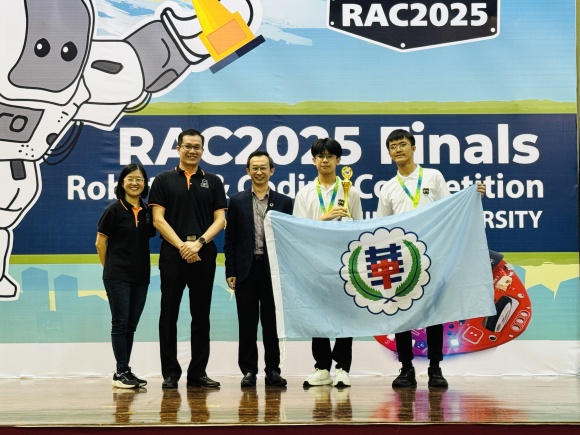Nilai UC gives value added education to its nursing students through a conference on simulation aids.
"In an emergency situation in a hospital, medical staff is busy attending to the patient while the students nurses on practical training are left to observe from a distance. There is very little chance for the student nurse to be directly involved in the process. There is thus a need for an alternative for them to learn critical lessons and this is where the use of simulation comes in," says Gnaneswari Subramaniam, Head of Nilai University College's (Nilai UC) nursing faculty. She was speaking at the launch of the first ever Asia Pacific Simulation in Nursing conference that was jointly organised by CAE Healthcare, METI Learning, Kinetic Edar and Nilai UC (which also acted as host for the event).
Nilai UC's academics and administrators mooted this conference as they believed that simulation techniques are vital in the efforts to produce quality and skilled nurses. By hosting the event, it also ensured that Nilai UC's nursing students got maximum exposure from this conference which featured keynote addresses from industry professionals and senior academics from nursing schools all over the world.
Integral Learning Process
"Simulation learning is not a substitute for actual experience. Although it is associated with gadgets and technology and is necessarily connected with working in labs, it does not mean nursing students aren't gaining valuable experience," says Prof Donna Mead, Dean of University of Glamorgan's Faculty of Health, Sport and Science.
Mead says in her experience in various nursing committees and advisory groups in the United Kingdom, she has come across plenty of scepticism surrounding simulation learning and many dismiss it saying there is no alternative to practical experience. Whilst not arguing with the importance of practical experience, Mead contends that there is no guarantee that practical learning will ensure nursing students learn all the relevant lessons. Echoing Gnaneswari's sentiments, Mead says all too often nursing students do not get any chance to learn as staff nurses and doctors are too busy to talk them through the unfolding scenario in a hospital ward, and that is only to be expected when a patient is in a critical situation.
"There is also no guarantee that a student will be faced with certain scenarios during their practical training. A student nurse may not come across a single cardiac arrest during practical training. These are very necessary lessons that must be taught to student nurses," she emphasised.
Mead asserts that simulated learning using mannequins should not be squeezed into the syllabus but rather be made an integral part of it. "Simulators allow nursing students to encounter scenarios or experiences that lecturers feel are important," she adds. "These simulators can accurately imitate human responses to a variety of scenarios. It has 72,000 different physiological responses and even responds in real time to medication. It can sweat, has hair follicles, bi-lateral chest movements and skin texture which is exactly like a human being's."
Scrum of an analogy
To illustrate her point, Mead used a brief video during the conference to illustrate her point. In the video, the world famous All Blacks rugby team were practising scrums with the aid of a machine. "I am sure no one is going to question the All Blacks and say they are not improving their rugby techniques even though they are using a machine. It is the same with simulators as it allows student nurses as it allows them to learn and improve their skills in a controlled and safe environment."
Gnaneswari agrees and says that the simulators are also help lecturers focus on students unlike in a ward where staff burses are busy looking after patients and dealing with life-and-death situations. It is also confidence building which is every important to student nurses who are entering a high pressure working environment.
"Findings are over-whelming positive and suggest strongly that learning in a simulated environment helps students to achieve clinical learning outcomes," says Mead. Nilai UC is one of the few institutions to have equipped the nursing department with simulation wards and the relevant equipment such as mannequins.
"Although this equipment is very expensive, Nilai UC has invested in the belief that they will help produce a higher grade of nurses. Some will ultimately say this equipment is nothing but gimmicks as they choose to not invest and pass the responsibility of training to hospitals. Nilai UC administrators thinks differently and believes students gain plenty of invaluable experience in these simulation wards. I invite parents and students who are interested in nursing to come visit our facilities and judge for themselves," states Gnaneswari.
Practice Makes Perfect
The two day conference was open to delegates from all over the region and attracted many industry professionals and academics. A third day was added for the benefit of Nilai UC nursing students to learn from experts in simulated learning. Workshops were held in Nilai UC's brand new Science and Technology block which housed the simulation wards and students were tutored on a variety of topics ranging from bedside manner to correct administering of drugs.
"I gained plenty of knowledge from these sessions and was privileged to learn from experts in this field. I fully agree that simulated learning should be an integral part of nursing,"says Lim Li Yee, a student Nilai UC BSc (Hons) in Nursing programme. Carrying the thread, her course mate Amy Lee also voiced her disappointment at those who are opposed to having simulated learning as part of nursing education. "It is really beneficial and speaking from experience, I have really learned a lot in the simulation wards. I am very glad Nilai UC has these facilities."
Loh Mun Yee, also a student in Nilai UC's nursing degree programme, summed it perfectly when she said, "How can anyone argue with nursing students learning how to deal with life-and-death situations in a controlled and safe environment. Practice really does make perfect and I would like to think that patients would like to be cared for by nurses who have all the right skills and knowledge."p>
Nilai UC's School of Allied Health Sciences was established in 2005 and offers three programmes - Diploma in Nursing, BSc (Hons) in Nursing and Diploma in Medical Laboratory Technology. For more information on Nilai UC and the programmes on offer, kindly visitwww.nilai.edu.my or call 06-8502338/07-2262336/03-79603089
